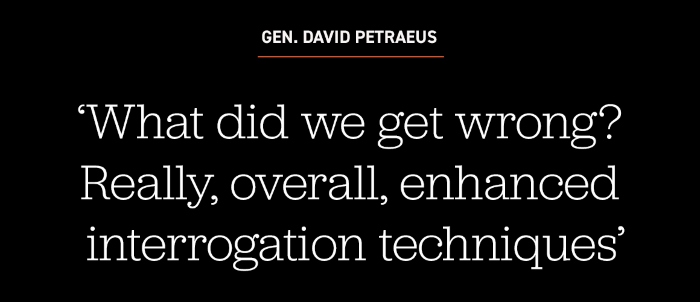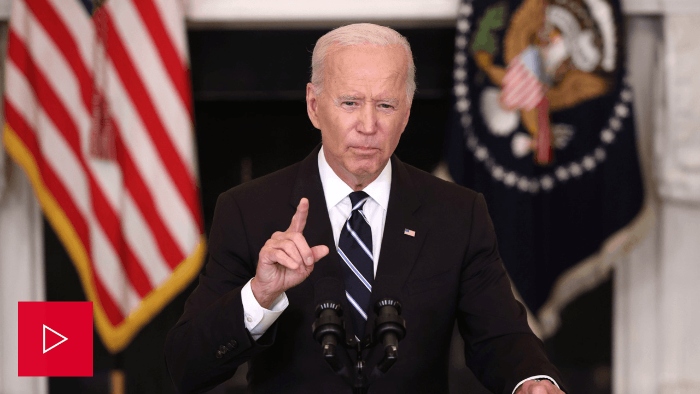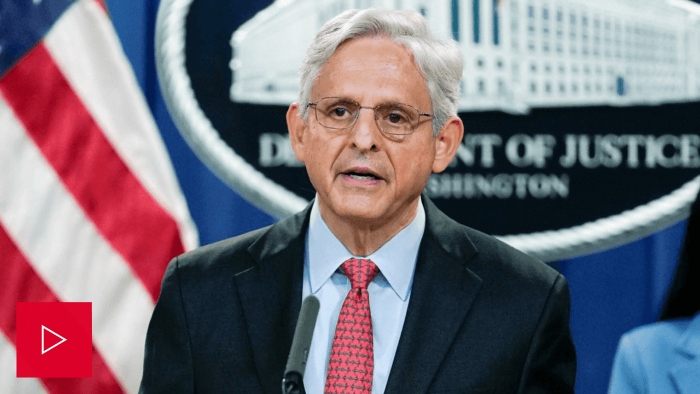| | |  | BY TYLER WEYANT | | With help from Joanne Kenen and Marc Caputo
| 
Gen. David Petraeus watches as President George W. Bush speaks during a meeting in the Oval Office on Jan. 26, 2007. | AP photo/Gerald Herbert | IMAGINING A 9/12 DO-OVER — For Bryan Bender and Daniel Lippman’s cover story in Friday’s POLITICO Magazine, the two reporters talked to 17 architects of the post-9/11 order. Bender and Lippman, in their words, “asked them what they think they got right and pressed them to speak candidly about what they would have done differently.” Here’s a first look for Nightly readers at what one of the builders of the 9/12 world, retired Gen. David Petraeus, had to say. Bender and Lippman write: “Petraeus is probably the most recognizable battlefield commander of the post-9/11 era. He served as the top general in both Iraq and Afghanistan, oversaw all U.S. military forces in the Middle East, and later served as director of the CIA. "On 9/11, Petraeus was a one-star general serving in Bosnia as part of the NATO Stabilization Force after that country’s civil war. Petraeus, now 68, is a partner at KKR, a private investment firm (which has a large stake in German media company Axel Springer, which has agreed to acquire POLITICO), and chairman of the KKR Global Institute.” Here’s some of what he had to say:
| 
| “Has there been another 9/11? No. “Over the years, we just took out leader after leader and some of these that are overlooked were vastly more important than people realize. “What did we get wrong? Really, overall, enhanced interrogation techniques. “That very much damaged our reputation and it damaged our relationships with countries in which we had black sites,” the secret locations around the world where the U.S. held terrorist suspects. “The use of enhanced interrogation techniques in other places then found their way into, in a way, Abu Ghraib,” the Iraqi facility where U.S. soldiers tortured Iraqi prisoners. Petraeus refuses to say whether he thinks the Iraq war was worth it — “That’s not one I ever answer” — but he is clear it made success in Afghanistan less likely. “You focus on Iraq very early on and so we never got ahead of the situation in Afghanistan, where of course the Taliban are shattered and al Qaeda is shattered. They’re all over in Pakistan and they gradually start to regroup. It takes them years to do this, during which we completely missed the opportunity to start building host-nation security forces in a serious way and start supporting host-nation governance. “We overly relied on drones in the effort in western Pakistan in 2009 to 2011. “You inevitably violate the most important question that should be on the wall of your operations center: ‘Will this operation take more bad guys off the street then it creates by its conduct?’” Read more from Petraeus and 16 other post-9/11 architects in Bender and Lippman’s cover story — “9/11 Reconsidered” — in POLITICO on Friday morning. Welcome to POLITICO Nightly. Reach out with news, tips and ideas for us at nightly@politico.com. Or contact tonight’s author at tweyant@politico.com and on Twitter at @tweyant.
| |
| | A message from Bank of America: The story of Greenwood is a story of America: complex, multilayered and continually evolving. Aligned with its $1.25B initiative to advance racial equality and economic opportunity, Bank of America has provided a $1M grant to the Greenwood Rising history center. | | | | | | 
| THE VAX MANDATES ARE HERE, SORT OF — Health care editor at large Joanne Kenen emails Nightly: President Joe Biden ordered all federal workers and contractors, as well as health workers in facilities that receive federal payments from Medicare and Medicaid, to get vaccinated. It’s a “hard mandate” — get vaccinated or get out. It isn’t a “Um, do you think you could please get a shot? But if you don’t want to, just get tested a lot and pull up that mask.” That more stringent approach is what a lot of public health experts want to see a lot more local governments, workplaces and colleges adopt. Testing once a week, a common way to opt out of vax mandates or make them seem less onerous, isn’t useless. But a test every seven days is well short of a coronavirus stopper. Someone recently exposed to the virus might test negative at the office Monday morning, turn positive by Tuesday, and that infection wouldn’t be detected for another week. In the meantime, the worker could blithely spread the virus, with everyone having a false sense of security after the negative test. Masks, social distancing and similar mitigating steps provide extra protection, but they aren’t perfect defenses (particularly if people don’t follow the rules consistently). Three tests a week would be more reliable (and rapid tests are fine) to identify active infection and prevent spread, said Céline Gounder, an infectious disease specialist and epidemiologist at NYU and Bellevue Hospital who advised the Biden transition team. Weekly testing can still be helpful for surveillance, Gounder added, helping track how much virus is circulating in a given place, maybe triggering a temporary closure of an office or school. Some data suggest that a weekly testing requirement can change behavior, making people more likely to get vaxxed. Behavioral economists might think of it as a nose nudge. “People don’t want to get something up their nose every week,” said West Virginia Health Commissioner Ayne Amjad. When they’ve had enough of those swabs, they get the shot. Medical exemptions are the other potential loophole. (Religious exemptions too, though let’s put those aside for now.) These medical outs should have “fairly stringent parameters,” like most states allow for childhood vaccines, Surgeon General Vivek Murthy told Nightly. If the exemptions are too broad, “they become abused.” According to the CDC, the vaccine is safe for people with pre-existing diseases — although it’s wise for people with those conditions to consult their doctors. Nor do allergies to dust, peanuts, bee stings or all sorts of other things make the Covid shot unsafe. Even people who are allergic to one ingredient, say a preservative, in a vaccine can get immunized, according to the CDC. If they can’t take Pfizer, for instance, they may be able to tolerate Johnson & Johnson, which is chemically different and has a different preservative. (It’s not even clear that preservatives are a problem at all, or that allergic people can’t be managed safely, although they may need to get the vaccine administered under medical supervision.) Ditto for cancer, pregnancy, auto-immune disorders. In almost every case, the risk of NOT being vaccinated is higher than the risk of being vaccinated, according to the CDC. And lest you think I’m too sanguine about risks and side effects — nope. I had a pretty hard time with my own first Pfizer dose, but was eventually able to get fully vaccinated with J&J, closely monitored with a lot of safeguards in my allergist’s office. Side effects are not a reason to shun the second shot. Covid is worse.
| |
| | STEP INSIDE THE WEST WING: What's really happening in West Wing offices? Find out who's up, who's down, and who really has the president’s ear in our West Wing Playbook newsletter, the insider's guide to the Biden White House and Cabinet. For buzzy nuggets and details that you won't find anywhere else, subscribe today. | | | | | | | LEFT JAB — National political reporter Marc Caputo emails Nightly an instant analysis of the politics of Biden’s vax mandate: His poll numbers falling as Covid cases rose, Biden was losing not only the narrative that put him in office, but also the battle against coronavirus. So he went big tonight by issuing his executive order mandating vaccinations or weekly Covid testing that could reach 100 million private-sector workers, chiefly those at midsize and large businesses. The White House says Biden has the authority to do this because Covid, which has killed 653,000 Americans, is a “grave danger.” That theory is sure to get tested in court, with conservatives howling that Biden overreached. If and when Biden gets sued, those who oppose him will be easier to define as the problem to the president’s solution. And if Biden loses in court, he’ll almost surely win in the court of public opinion. That is, he’ll win by losing in a country where more than 75 percent of the adult population has already received one shot. Polls show half of Americans support vaccine mandates at work . Only one-quarter are opposed. Biden underscored the popularity of his vaccine mandate by pointing out that even Fox News has one. By political party, the largest group of unvaccinated people are conservative Republicans. They already oppose Biden anyway. Their opposition to his mandates are already baked into public opinion. Enter Florida Gov. Ron DeSantis, Biden’s favorite foil in the Covid wars. He objected to the president’s action, saying: “I don’t support mandates of any kind … The one thing that I’m concerned about is them trying to force mandates on individuals and businesses.” It’s a notable statement coming from DeSantis, who tried to place his own coronavirus restrictions on businesses by forbidding them from requiring vaccine passports. DeSantis lost that fight in court. But his conservative base loved it. So he won by losing. In fairness to DeSantis, he said Wednesday that “my job is to protect individual freedom, not corporate freedom” when asked about vaccine passports. But today, a federal judge struck down DeSantis’s “Anti-Riot Law” on the grounds that it violated … individual freedom! (Conservatives, though, loved the effort by DeSantis. So he still won by losing.) Sound familiar? And if Biden wins in court, millions more could get vaccinated, greatly reducing deaths, hospitalizations, economic devastation and perhaps even Biden’s slide in the polls. That’s winning by winning.
| | — DOJ sues Texas over abortion law: The Biden administration today sued the state of Texas over its highly restrictive abortion law that the Supreme Court allowed to take effect last week . “The act is clearly unconstitutional under longstanding Supreme Court precedent,” Attorney General Merrick Garland said in a news conference. “This kind of scheme to nullify the Constitution of the United States is one that all Americans, whatever their politics or party, should fear.”
| 
| — Liz Cheney responds to Trump’s endorsement in Wyoming primary: Wyoming Rep. Liz Cheney has a message for former President Donald Trump and the primary candidate he endorsed today to unseat her: “Bring it.” After months of searching, Trump today announced his endorsement of Harriet Hageman, an attorney who resigned earlier this week as Wyoming’s national GOP committeewoman. Hageman previously served in 2013 on Cheney’s campaign as a senior adviser during her unsuccessful Senate run. Hageman was a delegate for Ted Cruz’s 2016 presidential campaign. — White House approves partnership with vets evacuating U.S. citizens, Afghan allies: The White House has approved a recommendation by the nation’s top military officer that the administration intensify cooperation with the ad hoc groups that have been working to evacuate American citizens and at-risk Afghans from the country, a White House and two State Department officials told POLITICO. On Tuesday at the Pentagon, Joint Chiefs Chair Gen. Mark Milley met for the first time with representatives from a number of the groups, according to eight people familiar with discussions and an informal readout sent to volunteers. — Biden admin backs direct government drug price negotiations: A new Biden administration plan aimed at lowering prescription drug prices endorses giving the government sweeping power to directly negotiate the cost of medicines , calling it one of the key steps Congress could take to make drugs “more affordable and equitable” for all Americans. The plan — developed by the Department of Health and Human Services and released today — largely backs Democrats’ ongoing efforts to lower drug prices as part of a $3.5 trillion reconciliation proposal, and mirrors a range of legislative options that both House and Senate lawmakers have floated in recent years. — White House set to withdraw ATF nominee: David Chipman is currently a senior policy advisor to Giffords, a gun control group, and faced an uphill battle to Senate confirmation as Biden’s point person on firearms regulation. Sen. Angus King (I-Maine) had previously told the Biden administration and Senate Democrats that he was not supportive of the nominee. Other moderate Democratic senators, including Joe Manchin of West Virginia and Jon Tester of Montana, have also remained noncommittal on the pick.
| |
| | A message from Bank of America:  
| | | | | Nightly asks you: Are you too young to remember living through Sept. 11, 2001, or were you born after it? What is your first memory of learning about 9/11? How did you find out about what happened that day? Send us your responses using our form , and we’ll share some answers in our Friday edition.
| |
| | HAPPENING WEDNESDAY - POLITICO TECH SUMMIT: Washington and Silicon Valley have been colliding for some time. Has the intersection of tech, innovation, regulation and politics finally reached a tipping point? Join POLITICO for our first-ever Tech Summit to explore the evolving relationship between the power corridors of Washington and the Valley. REGISTER HERE. | | | | | | | | |
| | | UP IN SMOKE — FDA has ordered 5 million e-cigarette products off the market, it said today — an announcement timed to a court-ordered deadline that will determine the future of the vaping industry, Katherine Ellen Foley writes. But the agency surprised many observers by delaying its verdict on the industry’s largest players, after saying for months that its review process would give priority to firms by market share. The last-minute verdicts drastically narrow the e-cig market in the United States. Lawmakers and public health organizations have lobbied for years to limit the e-cig market, arguing that the risks of vaping exceed its benefits. Much of the concern has focused on flavored e-cigarettes’ appeal to minors. A 2020 study from the CDC and FDA found that among current adolescent smokers, more than 80 percent of high school students and 70 percent of middle school students use flavored vape products. In its announcement today FDA said the makers of the banned products “failed to provide sufficient evidence” that the benefits to adult smokers, for whom vapes are a less-damaging alternative to traditional tobacco, outweigh the “documented risks to youth.” Mea culpa: In last night’s newsletter, we incorrectly stated Rice University’s policies on vaccination at sporting events. Rice is not requiring fans at its sporting events to show proof of vaccination.
| |
| | A message from Bank of America: A century after the rise and destruction of Tulsa's Greenwood neighborhood, Greenwood Rising is turning the site of a tragedy into a vibrant community hub, supported by a $1 million grant from Bank of America.
Greenwood, or Black Wall Street, was a thriving community of Black-owned businesses until the race-fueled massacre of 1921 that killed hundreds of Black residents and wiped out the neighborhood's homes and businesses. 100 years after this tragedy, increased economic activity in the neighborhood—including a history center—is bringing to life the spirit of Black Wall Street. | | | Did someone forward this email to you? Sign up here. | |
|
| | Follow us on Twitter | | | FOLLOW US
|
| |

No comments:
Post a Comment